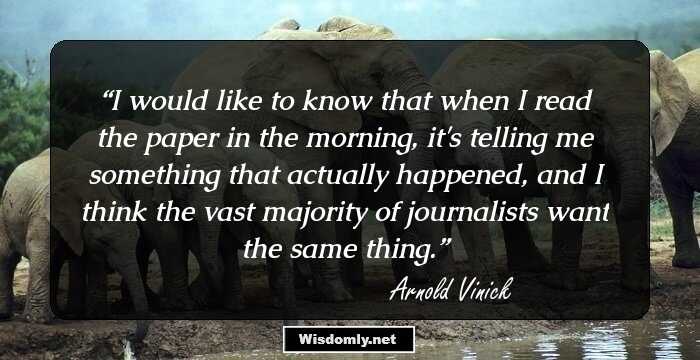33 Great Quotes By Dorothea Lange On Photography, Life And More
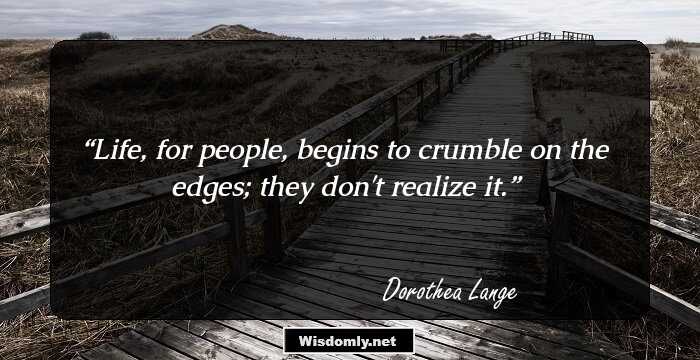
Life, for people, begins to crumble on the edges; they don't realize it.
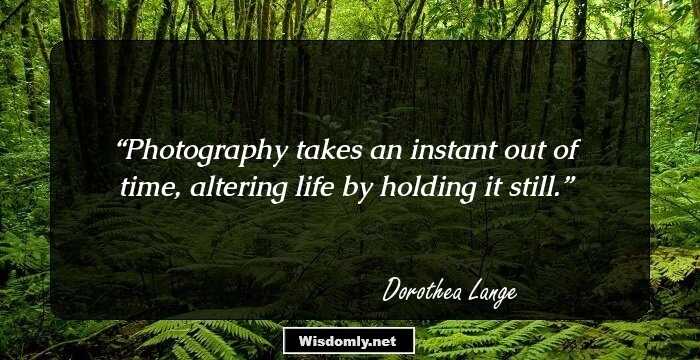
Photography takes an instant out of time, altering life by holding it still.
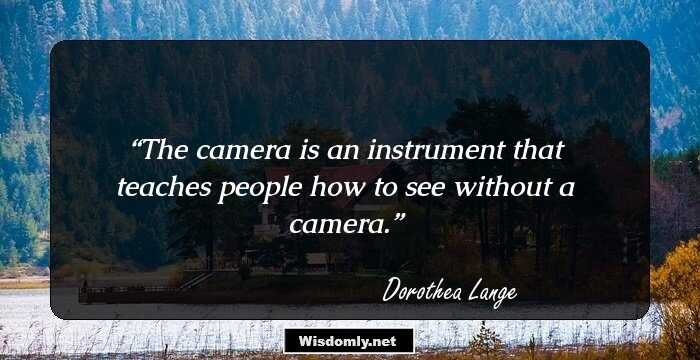
The camera is an instrument that teaches people how to see without a camera.
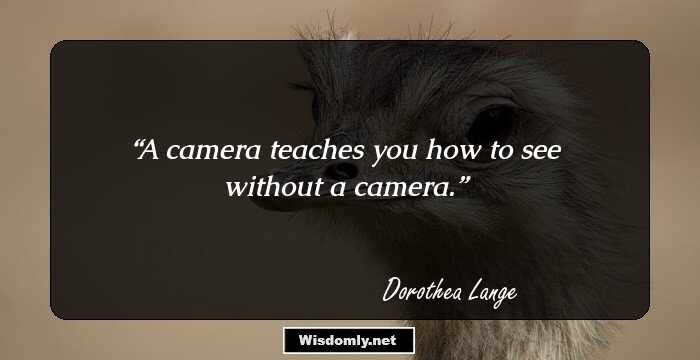
A camera teaches you how to see without a camera.
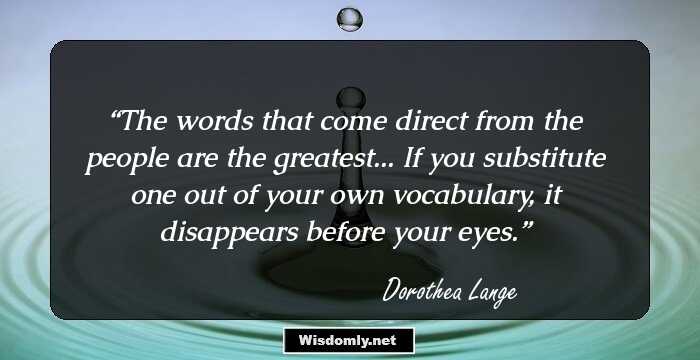
The words that come direct from the people are the greatest... If you substitute one out of your own vocabulary, it disappears before your eyes.
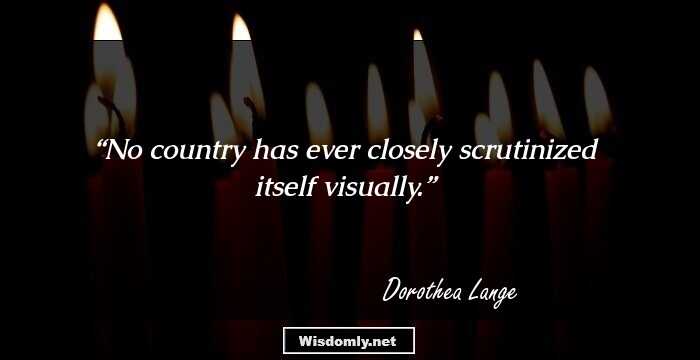
No country has ever closely scrutinized itself visually.
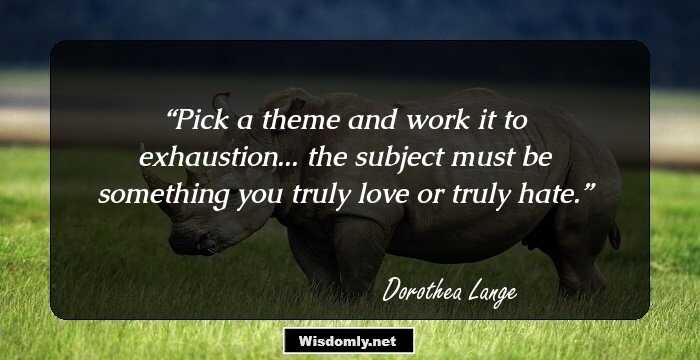
Pick a theme and work it to exhaustion... the subject must be something you truly love or truly hate.
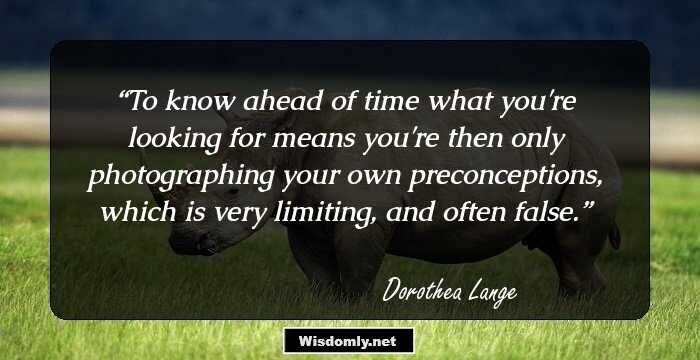
To know ahead of time what you're looking for means you're then only photographing your own preconceptions, which is very limiting, and often false.
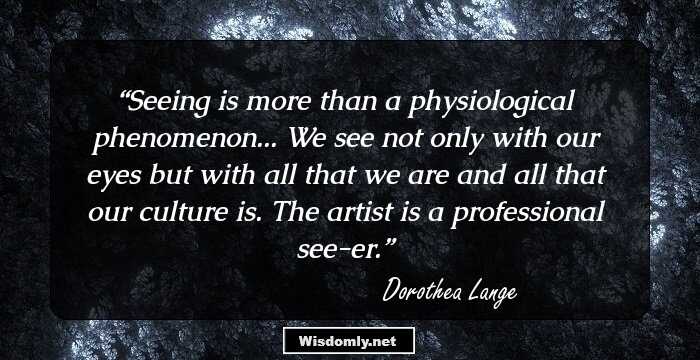
Seeing is more than a physiological phenomenon... We see not only with our eyes but with all that we are and all that our culture is. The artist is a professional see-er.
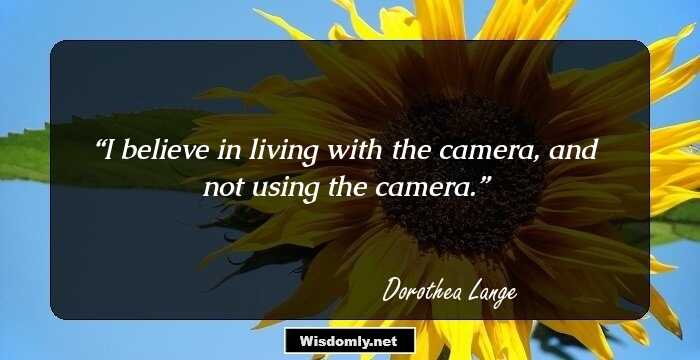
I believe in living with the camera, and not using the camera.
The people who are garrulous and wear their heart on their sleeve and tell you everything, that's one kind of person, but the fellow who's hiding behind a tree and hoping you don't see him is the fellow that you'd better find out why.
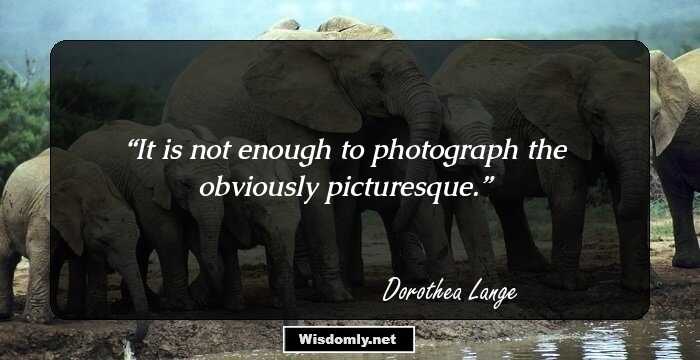
It is not enough to photograph the obviously picturesque.
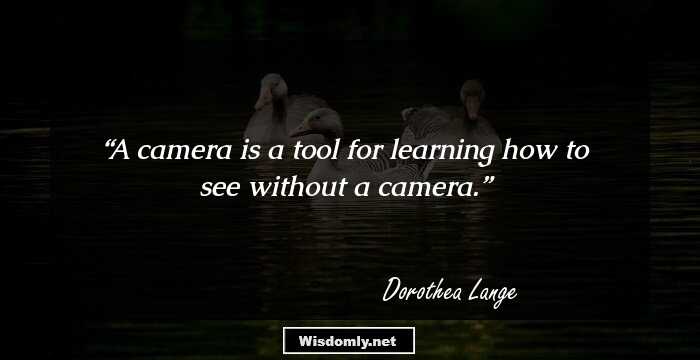
A camera is a tool for learning how to see without a camera.
I many times encountered courage, real courage. Undeniable courage. I've heard it said that that was the highest quality of the human animal. I encountered that many times, in unexpected places. And I have learned to recognize it when I see it.
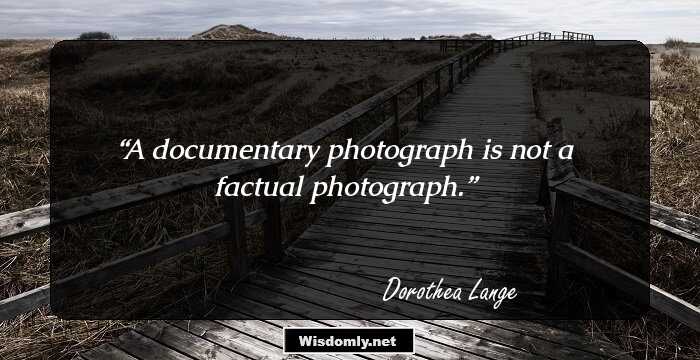
A documentary photograph is not a factual photograph.
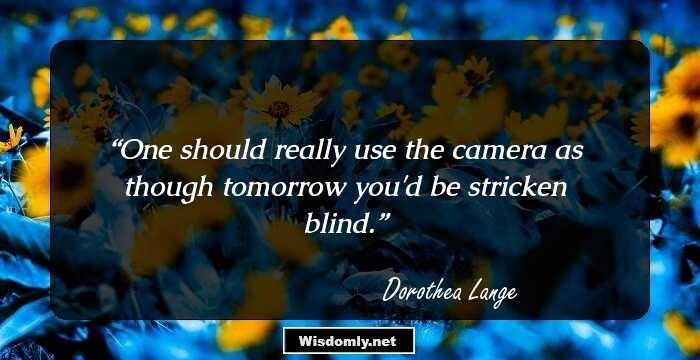
One should really use the camera as though tomorrow you'd be stricken blind.
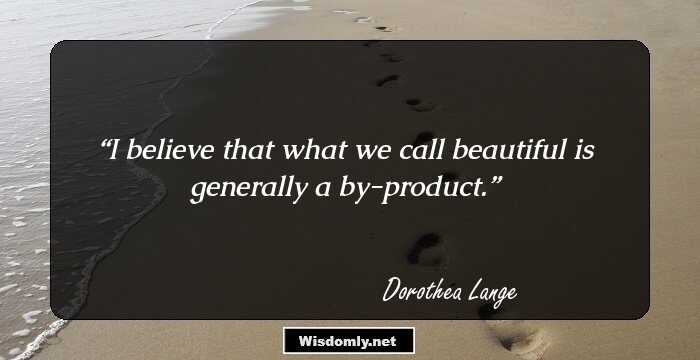
I believe that what we call beautiful is generally a by-product.
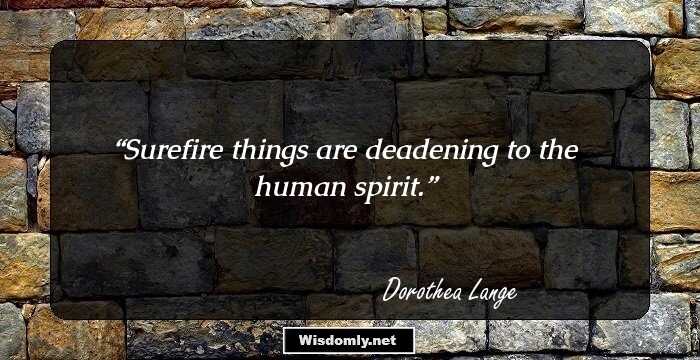
Surefire things are deadening to the human spirit.
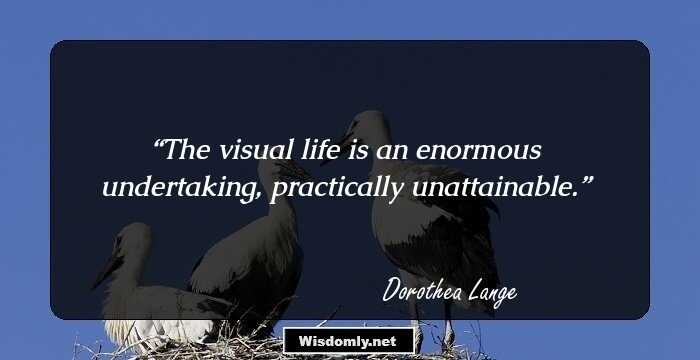
The visual life is an enormous undertaking, practically unattainable.
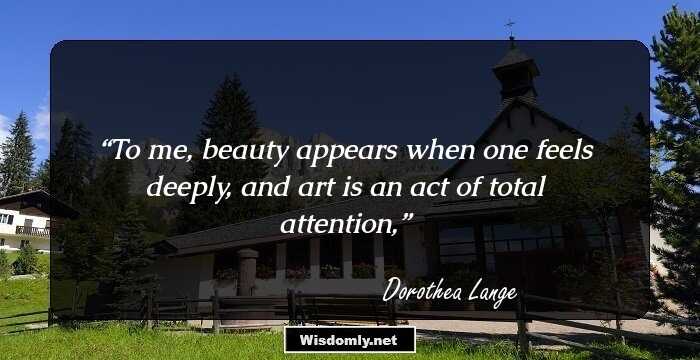
To me, beauty appears when one feels deeply, and art is an act of total attention,
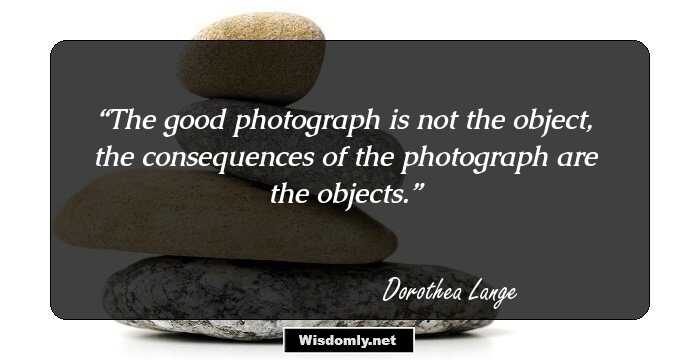
The good photograph is not the object, the consequences of the photograph are the objects.
You put your camera around your neck along with putting on your shoes, and there it is, an appendage of the body that shares your life with you. The camera is an instrument that teaches people how to see without a camera.
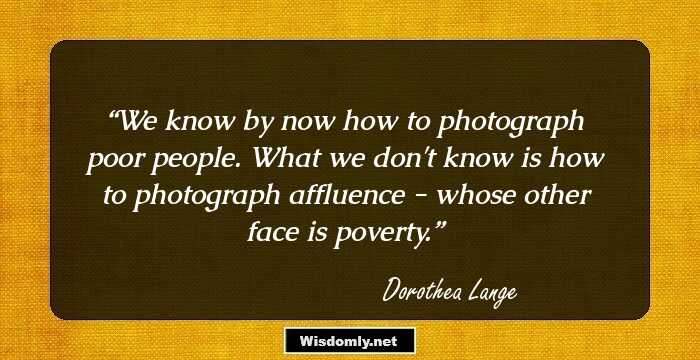
We know by now how to photograph poor people. What we don't know is how to photograph affluence - whose other face is poverty.
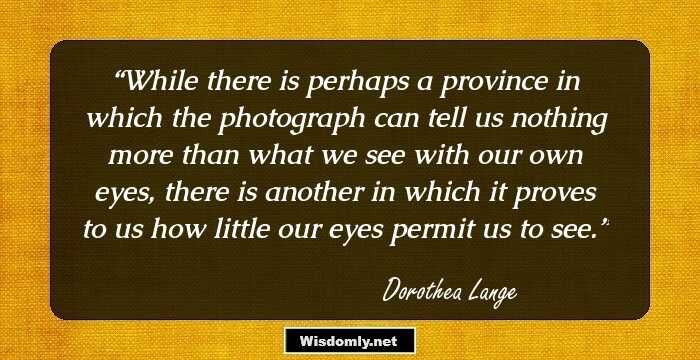
While there is perhaps a province in which the photograph can tell us nothing more than what we see with our own eyes, there is another in which it proves to us how little our eyes permit us to see.
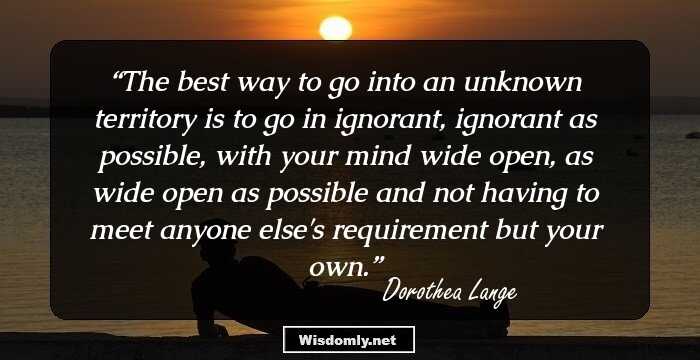
The best way to go into an unknown territory is to go in ignorant, ignorant as possible, with your mind wide open, as wide open as possible and not having to meet anyone else's requirement but your own.
This benefit of seeing...can come only if you pause a while, extricate yourself from the maddening mob of quick impressions ceaselessly battering our lives, and look thoughtfully at a quiet image...the viewer must be willing to pause, to look again, to meditate.
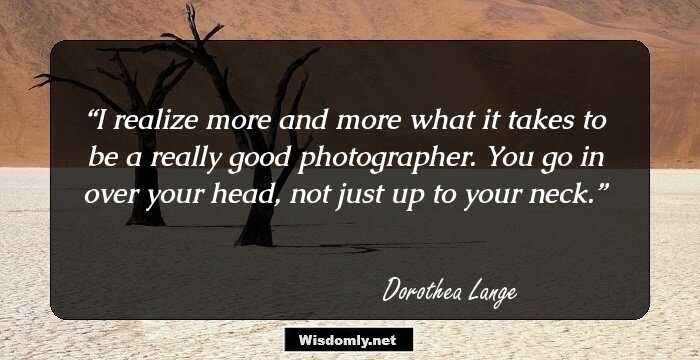
I realize more and more what it takes to be a really good photographer. You go in over your head, not just up to your neck.
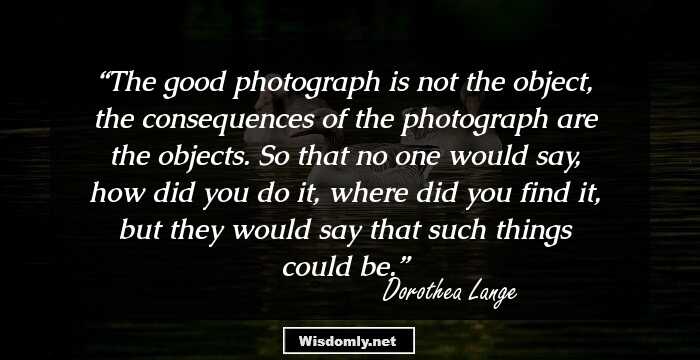
The good photograph is not the object, the consequences of the photograph are the objects. So that no one would say, how did you do it, where did you find it, but they would say that such things could be.
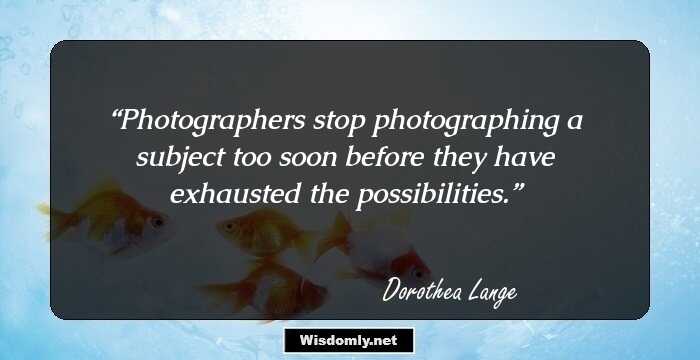
Photographers stop photographing a subject too soon before they have exhausted the possibilities.
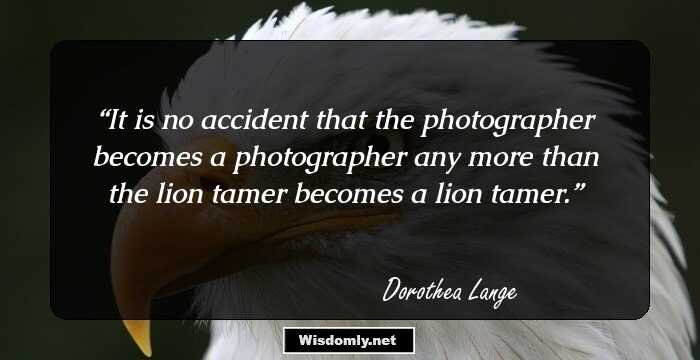
It is no accident that the photographer becomes a photographer any more than the lion tamer becomes a lion tamer.




